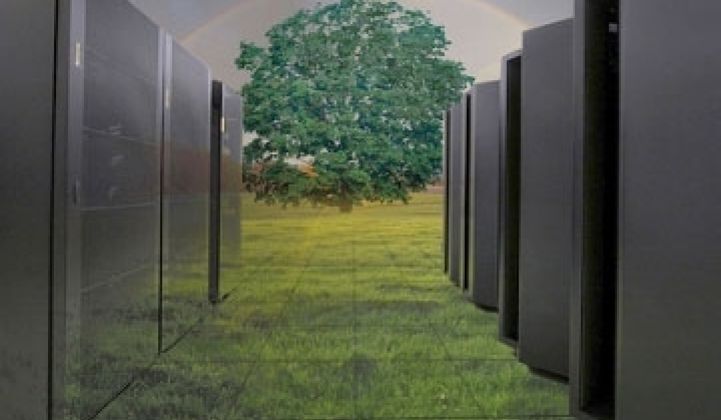Racktivity can tout a number of impressive statistics about its system for managing power consumption in data centers.
It monitors power consumption thousands of times a second. It can see power consumption down to the single device level. The hardware/software system created by the company even manages power consumption on both the power and the load side.
But the most important thing to know is this: the executives behind the company have been through the acquisition process before.
Belgian entrepreneur Kristof De Spiegeleer is chairman of the board. He founded Racktivity in 2008 and was the CTO at Q-Layer, which Sun Microsystems bought last year. He founded Datacenter Technologies, which Veritas bought in 2005, and Hostbasket, bought by Telenet in 2008. He also founded Dedigate, bought by Terremark in 2005 (Racktivity founder Wilbert Ingels came from Terremark).
Although most companies would rather pull off a public offering and become a brand-name entity, a larger number will end up as acquisition targets -- and an even larger number will end up on the scrap heap of history. Thus, knowing how to orchestrate a takeover is a valuable skill.
As part of its growth strategy, today the company announced that Marco DeMiroz, a former partner at Trinity Ventures and until recently the COO at concentrating solar company Soliant, will become CEO.
Technically speaking, computers and data centers are not huge problems when it comes to greenhouse gas emissions. Data centers account for only around 2 percent of the electricity consumed in the U.S., while computers account for only 4 percent of energy consumption in commercial buildings in the U.S., according to DOE statistics. That's about the same amount as refrigeration, and one-sixth of the amount consumed by lighting. However, in the years ahead, data centers will continue to increase in importance and size, making green IT an increasingly significant issue.
Even more importantly, hardware and computer vendors have already latched onto the idea that energy efficiency will make their products more appealing. Intel, IBM, Dell, Symantec, Hewlett-Packard and SAP, among others, have already retrofitted their products for efficiency. Thus, change will likely occur in IT before it occurs in a more traditional field like paint manufacturing or air conditioning.
At the same time, innovations in IT will spill over into other fields like smart grid and building management. Some of the innovations you see come out of Racktivity, SmartSynch, Silego and Silicon Labs thus might have further applicability in the wider world.
CORRECTION: We earlier spelled Racktivity without the "k." Sorry about that.



